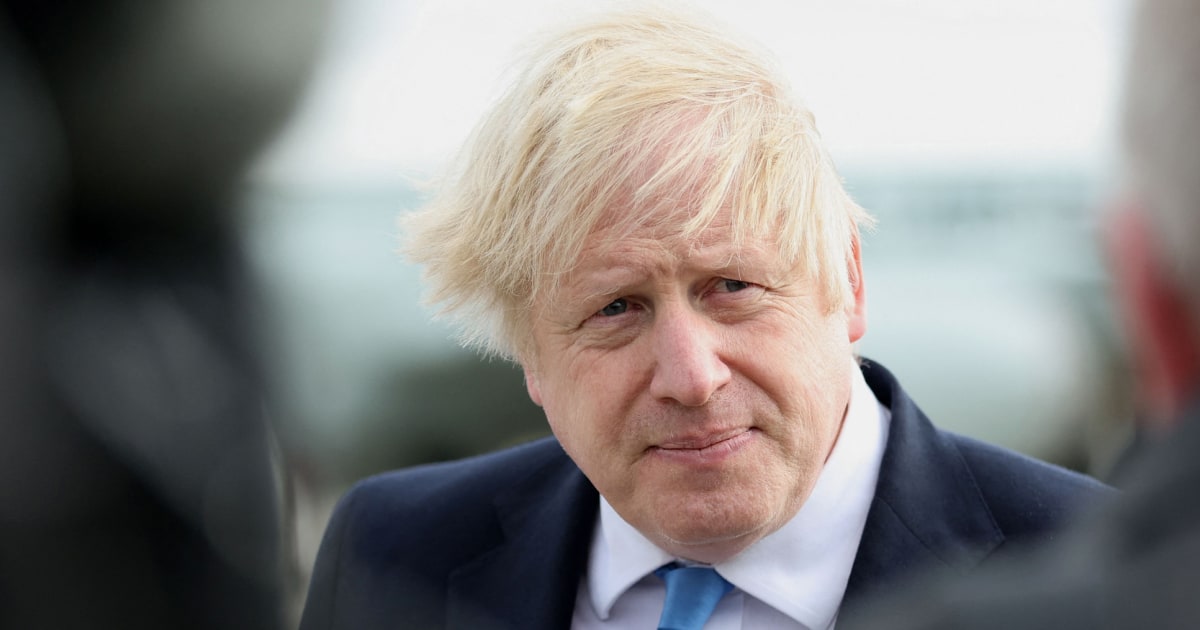
HONG KONG — In the leadup to Russia’s invasion of Ukraine, the international war of words found an unusual battlefield: Chinese social media.
Earlier this week, the Ukrainian Embassy in China took to Weibo, China’s equivalent of Twitter, to criticize Russia for recognizing the independence of two breakaway regions in eastern Ukraine. Since then, the invasion by Moscow has drawn global condemnation.
“We insist on tough sanctions against Russia to send a clear signal that no further escalation is allowed,” the Ukrainian Embassy said in a Chinese-language statement on Tuesday that received almost 800,000 likes in two days. “It is time to act to end Russian aggression and restore peace and stability in Europe.”
Download the NBC News app for breaking news and politics
Last week, British Prime Minister Boris Johnson attempted to defuse Ukraine tensions with a Weibo post urging Russian President Vladimir Putin to engage in dialogue.
“We are on the edge of a cliff, but President Putin still has time to step back and think,” Johnson wrote in Chinese on Feb. 15.
Johnson’s post had received 1.66 million likes by Wednesday evening, before Russia began its invasion of Ukraine. But it drew a sharp response from the Russian Embassy in China, which called it “utterly absurd.”
The Downing Street statement “is designed to further inflame the hysteria surrounding the so-called imminent Russian invasion of Ukraine,” the embassy said in a Weibo post on Feb. 16, which by Wednesday evening had drawn comparatively few likes at 40,000.
Other Weibo users saw an opportunity for jokes, asking Johnson if there would be another season of the BBC TV series “Sherlock Holmes.”
Following British leaders before him, Johnson has been posting on Weibo since 2020, using an official account established by the prime minister’s office in 2013. His last post was during the U.N. climate change conference in November, when China and the United States pledged to work together on the issue.
But some Weibo users expressed surprise that officials would debate the Ukraine issue so visibly on that platform, where embassies typically post about relations with China or the culture and history of their home countries.
“I did not expect that I could see an international event escalating on Weibo,” one user wrote in the top-ranked comment on the Ukrainian Embassy’s statement.
The rise of China may have prompted the West to be more inclined to view the Ukraine crisis as a product of cooperation between China and Russia, according to Yang Cheng, a professor who researches Russian foreign relations at Shanghai International Studies University.
The two countries have been forging closer ties, and Yang said other world leaders may think they can resolve the Ukraine crisis by appealing to China.
“The widespread idea of associating the Ukraine crisis with the Taiwan issue, as well as calling for an extension of sanctions to China by U.S. politicians — all suggest the West perceives China and Russia are in the same camp,” Yang said, referring to fears that Russia’s invasion of Ukraine may embolden China in its territorial claims on the self-governing island of Taiwan.
In a phone call on Friday, Chinese President Xi Jinping told Putin that Beijing’s position on the Ukraine conflict was “based on the merits of the matter concerned” and that he supported talks between Russia and Ukraine. At a news briefing the same day, Foreign Ministry spokesman Wang Wenbin said China would continue to promote peace and urge talks in its own way, and “welcomes and encourages all efforts to advance a diplomatic solution.”
Another possibility behind the Weibo posts, Yang said, is that countries are attaching more importance to China and therefore feel a greater urgency to explain their positions in the Chinese-speaking world.
“Their voices can be heard in the Western world as the English-speaking world is dominated by the Western media,” he said. “However, China’s role in global affairs has grown increasingly.”
Source: | This article originally belongs to Nbcnews.com








